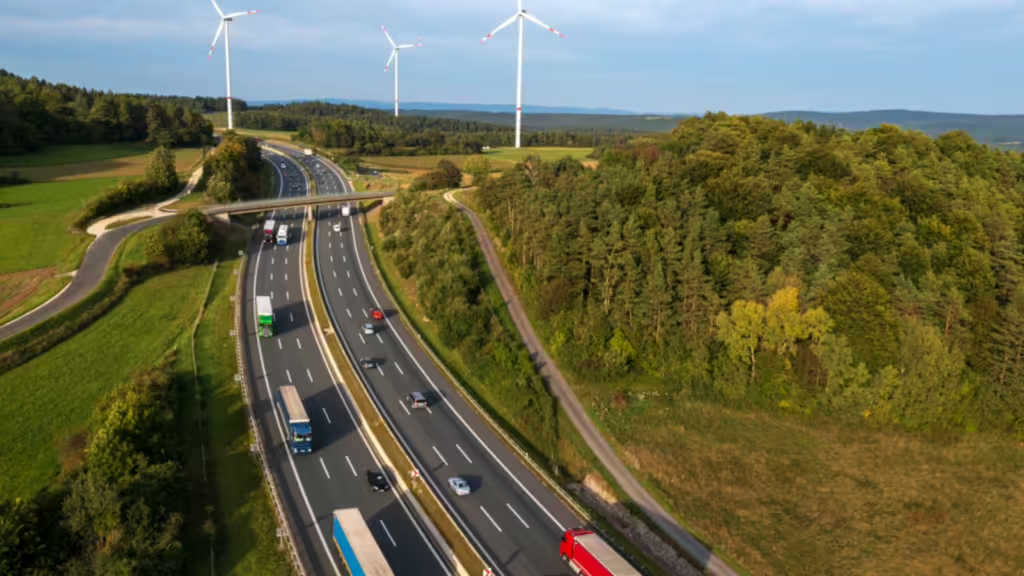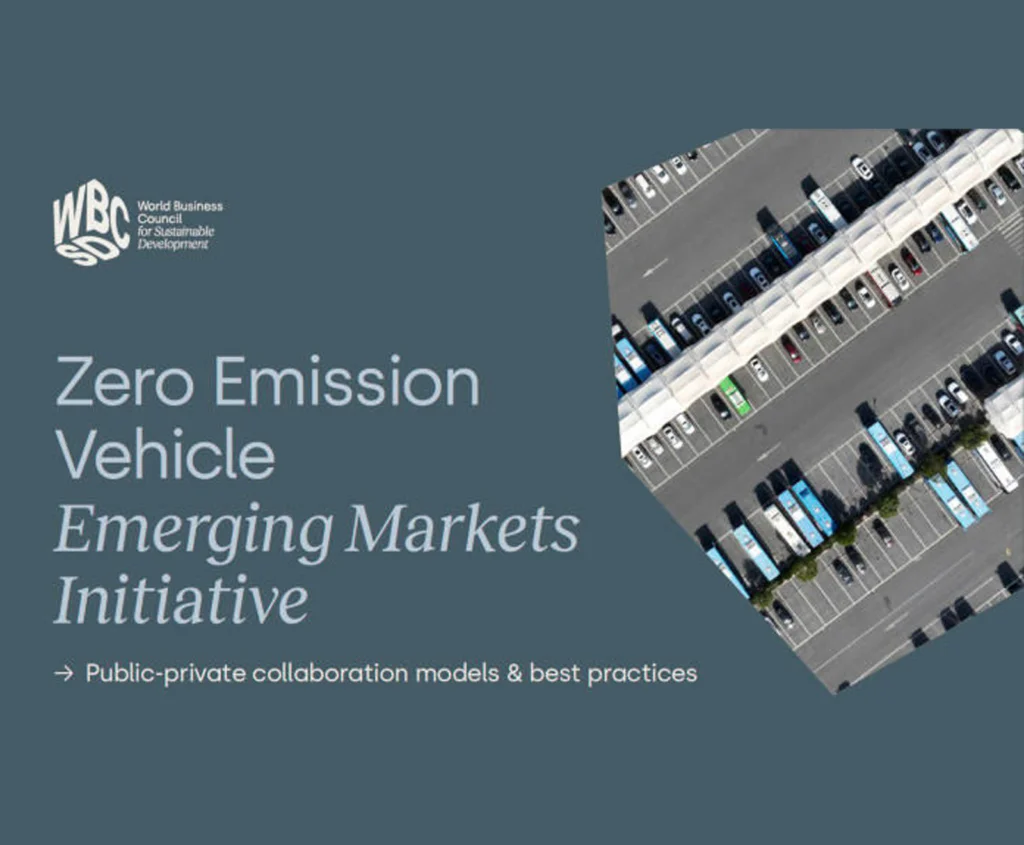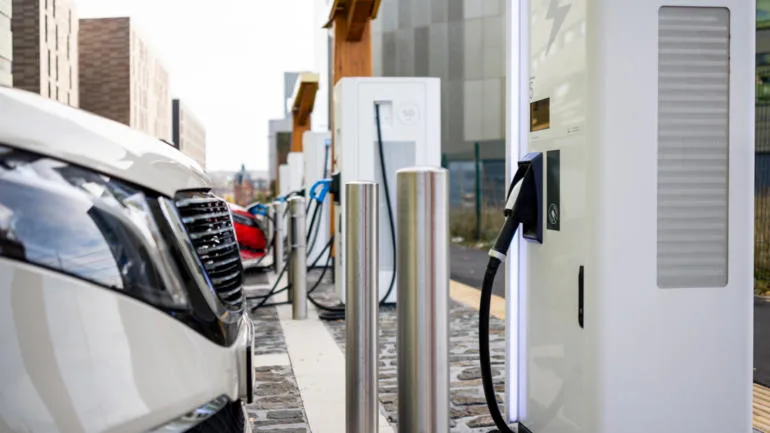Introduction
01
The deployment of zero-emission vehicle (ZEV) technologies is an essential part of transport sector decarbonization and one of the key solutions to climate change mitigation.
While developed markets have been at the forefront of ZEV deployment with well-established infrastructures, stricter government regulations and policy incentives, the adoption of these technologies has been progressing at a much slower pace in emerging markets and developing economies (EMDEs). The ZEV Emerging Markets Initiative (ZEV-EMI), launched jointly by WBCSD and the U.S., U.K. and governments under the ZEVTC, aims to elevate cooperation between governments and businesses in EMDEs to accelerate the transition to ZEVs.
The challenge
02
The transport sector is responsible for a quarter of global energy-related carbon emissions. Accelerated deployment of ZEV technologies can help reduce emissions in line with a 1.5-degree scenario.
However, the deployment of ZEVs in emerging markets faces many challenges, such as the availability of technically and cost-suitable vehicles, limited access to charging infrastructure and green electricity, and inadequate policy frameworks. The challenge becomes multidimensional with the diversity of technology maturity and regulations across geographies and the multitude of market and demand segments to address.
The business case
03
Wide-scale adoption of ZEVs presents a significant opportunity for emerging markets.
In addition to reducing carbon emissions, deploying ZEVs offers numerous environmental benefits, such as mitigating air pollution and aligning with sustainability goals. Recognizing the importance of sustainable transportation, businesses are actively committing to transitioning to ZEVs. However, broader collaboration among various stakeholders is crucial in driving investments toward ZEV deployment. By working together, businesses, governments and other key players can leverage their collective expertise and resources to accelerate the adoption of ZEVs in emerging markets. In particular, collaboration with financial institutions is crucial, as innovative financing mechanisms like demand aggregation can facilitate the scaling of ZEV deployment.
The solution
04
Launched by WBCSD and the current co-chairs of the ZEV Transition Council, the U.S. and U.K., the ZEV-EMI serves as a platform that brings together businesses and governments in emerging markets, fostering focused dialogues aimed at forging partnerships to expedite private investments and bolster supportive public policies.
With the ultimate goal of establishing collective agreements, ZEV-EMI unites over 25 leading businesses along the ZEV value chain. By aligning with the broader Transition Council (ZEVTC) Framework, ZEV-EMI contributes to activities that drive an accelerated and equitable global transition to ZEVs, empowering companies and governments to achieve their ZEV deployment goals.

Companies unite to advance freight and passenger zero-emission vehicles in Mexico, signaling demand for more than 17,000 electric vehicles by 2030
14 November, 2024

22 businesses meet to stimulate investments in zero-emission freight corridors
30 September, 2024

Digital collaboration for EV charging infrastructure substantially reduces costs and improves operations
10 September, 2024

Zero-Emission Vehicle Emerging Markets Initiative: Public-private collaboration models & best practices
5 December, 2023

Financing charging infrastructure
17 November, 2022

How to use data for faster and better charging
13 July, 2023
